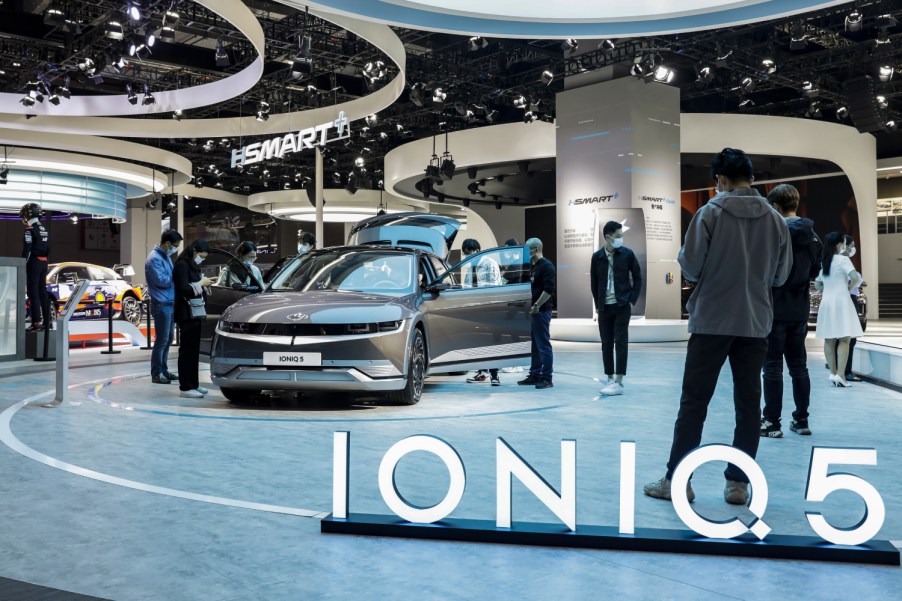
The Hyundai Ioniq 5 is Using DC Fast Charging
Electric vehicles are in and gasoline is out! Just kidding, for now. But the switch to all-electric seems to have happened slowly at first and then overnight, all the major brands are participating. The Hyundai Ioniq 5 is the next on the list.
How fast will the Hyundai Ioniq 5 charge?

Hyundai partnered with Electrify America to offer new Ioniq and Kona electric vehicle owners complimentary charging. Electrify America and Hyundai are offering 250kWh of charging at the companies 2,400 fast chargers around the U.S.
Word on the street is that the Hyundai Ioniq 5 is going to charge quite fast. Based on the data collected at Inside EVs, we can see an example of a Hyundai Ioniq 5 charging session.
It shows that the peak charging power for the Ioniq remained above 230 kW, which is very high. It is suggested that you only charge around 80% to retain battery life, so the chart drops sharply after 80%. The charge stayed above 100kW until then,
In another instance, it showed the Ioniq charged from 10% to 80% in around 18 minutes using an 800 volt ultra-fast charger. That netted it about 60 miles in 4.5 minutes of charging.
Average EV charging power
In most instances, it is suggested that you charge from 20% to 80%. You don’t want to drain your battery much past 20% or charge it past 80% to retain battery life.
The average charging range for 20-80% was just around 147 kW. For the most part, that is around 60-65% of the peak charging value. The math shows us that the range of charging 20-80% is just around 10 miles per minute.
For a new electric vehicle, these are pretty impressive results. Getting 10 miles a minute on average is usually what EVs get during the peak charge.
Hyundai-Kia noted in a press release previously that the brand expected ultra-fast charging to take around 18 minutes for that recommended percentage. That’s right in line with the 60 miles in 4.5 minutes suggested above.
Electric vehicle DC Fast Charging
Electric vehicles can charge at home or public charging stations. While at home, you have the option of a few different types of chargers. This means different brands and different charging speeds.
At public charging stations, you will be able to find DC Fast Chargers that will charge your EV at a much faster rate. ChargePoint has some good information about what differentiates the chargers.
The “DC” in DC Fast Charging means “direct current.” Level 2 chargers are “AC” chargers, or “alternating current,” similar to what you would find in a typical home outlet.
Electric vehicles have chargers inside the car that can convert AC to DC for faster charging. This means your battery will charge quickly, but it also means your battery is working harder.
Overall, these are impressive numbers from Hyundai. The next few years of electric vehicle improvements are going to be exciting to watch.



